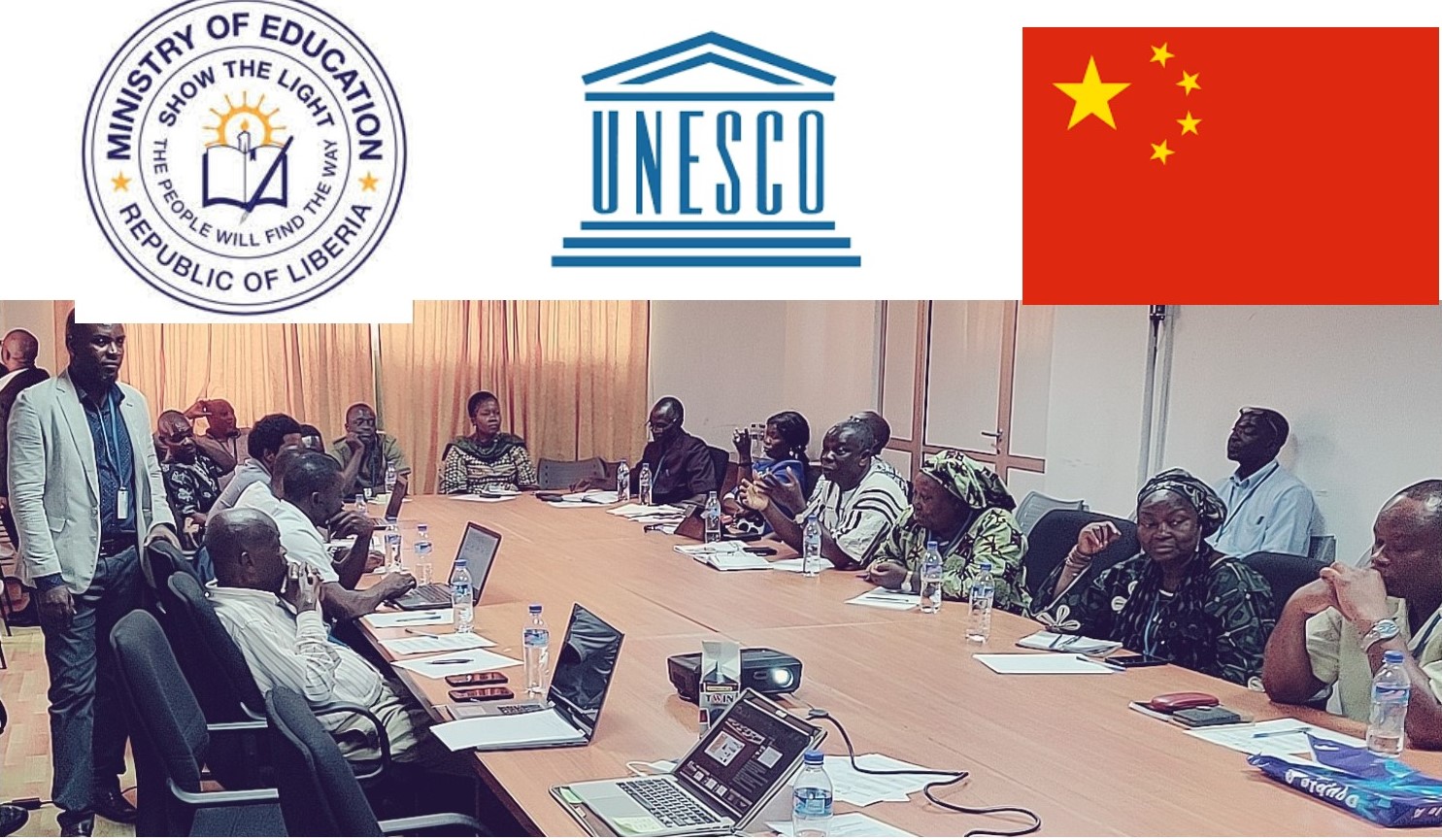Monrovia-The UNESCO office in Liberia in collaboration with the Ministry of Education has begun a workshop to draw up a national policy on ICT in Education sponsored by the People’s Republic of China.
UNESCO is the United Nations Educational, Scientific and Cultural Organization.
Speaking at the start of the two-day UNESCO-CFIT workshop on Tuesday, March 12, 2019 at the UN headquarters in Monrovia, the head of UNESCO office in Liberia, Mr, Stevenson Seidi said there is a need to mainstream technology in education policy in the country.
He said it is time that learning institutions graduate from using the chalk board and advance to using equipment in Information Communication Technology (ICT) in the classrooms.
Mr, Seidi noted that Liberia has come of age and needs to move along with technology, stressing how appalling it is that even at the level of tertiary institutions, chalk boards are still in use.
The formulation of an ICT in Education policy is Phase II of UNESCO-China Funds in Trust project on “Enhancing Teacher Education for Bridging the Education Quality Gap in Africa.”
Accomplishing this task would be a history-making success, as there is no ICT policy in education up to present, despite existing in other sectors, Mr. Seidi said.
The head of UNESCO Liberia office believes that without such a nation policy, people would operate in a disorganized manner.
“The policy document guides you as to what you should do; so if anybody comes into this country and wants to do something, if and when this policy is truly approved by the government, that person has to buy into the policy,” he added.
They have taken a prototype of ICT program from Ghana with the aim of customizing it for Liberia.
The project titled, Enhancing Liberia Teacher Education Program through Information Communication Technology Pedagogy, has as targetgroups, teacher-educators, pre-service teachers and in-service teachers at the exciting four teacher training institutes in Liberia.
Participants in the ICT in Education workshop also come from the Teacher Training Institutes: the Zorzor Rural Teacher Training Institute (ZRTTI) in Zorzor, Lofa County, Webbo Rural Teacher Training Institute, Webbo District, River Gee County, Kakata Rural Teacher Training Institute (KRTTI) in Margibi County, and the W. V. S. Tubman Teacher College at the University of Liberia in Monrovia.
“The project will continue to remain engaged with major education and other development partners in the country including UNESCO, EU, USAID, World Bank and UNICEF with the view to seeking technical and other required support for the enhancement of the programme,” according to the Country Project Document.
It adds that UNESCO will provide international oversight supervision, monitoring and serve as financial conduit and facilitate lesson learning roles and experience sharing.
On day one of the workshop, the CEO of the Diversified Education Empowerment Project (DEEP) who served as one of the facilitators, gave a presentation on the topic: ICT in Education.
Mr. Moses Blonkanjay Jackson, former Assistant Education Minister for Teacher’s Education, outlined some key benefits of ICT-based education as learning by doing approach, enabling of self-placed learning and creation of access to wide range of up-to-date learning materials.
ICT in education “enriches learning through a combination of audio, video, images, text and animation, learning through interaction and collaboration,” as well as providing platform that engages students, Mr. Jackson pointed out.
The ongoing exercise for the formulation of an ICT in Education Policy ends this Thursday with thematic discussions and presentations to come up with a framework and strategy for a national policy.

